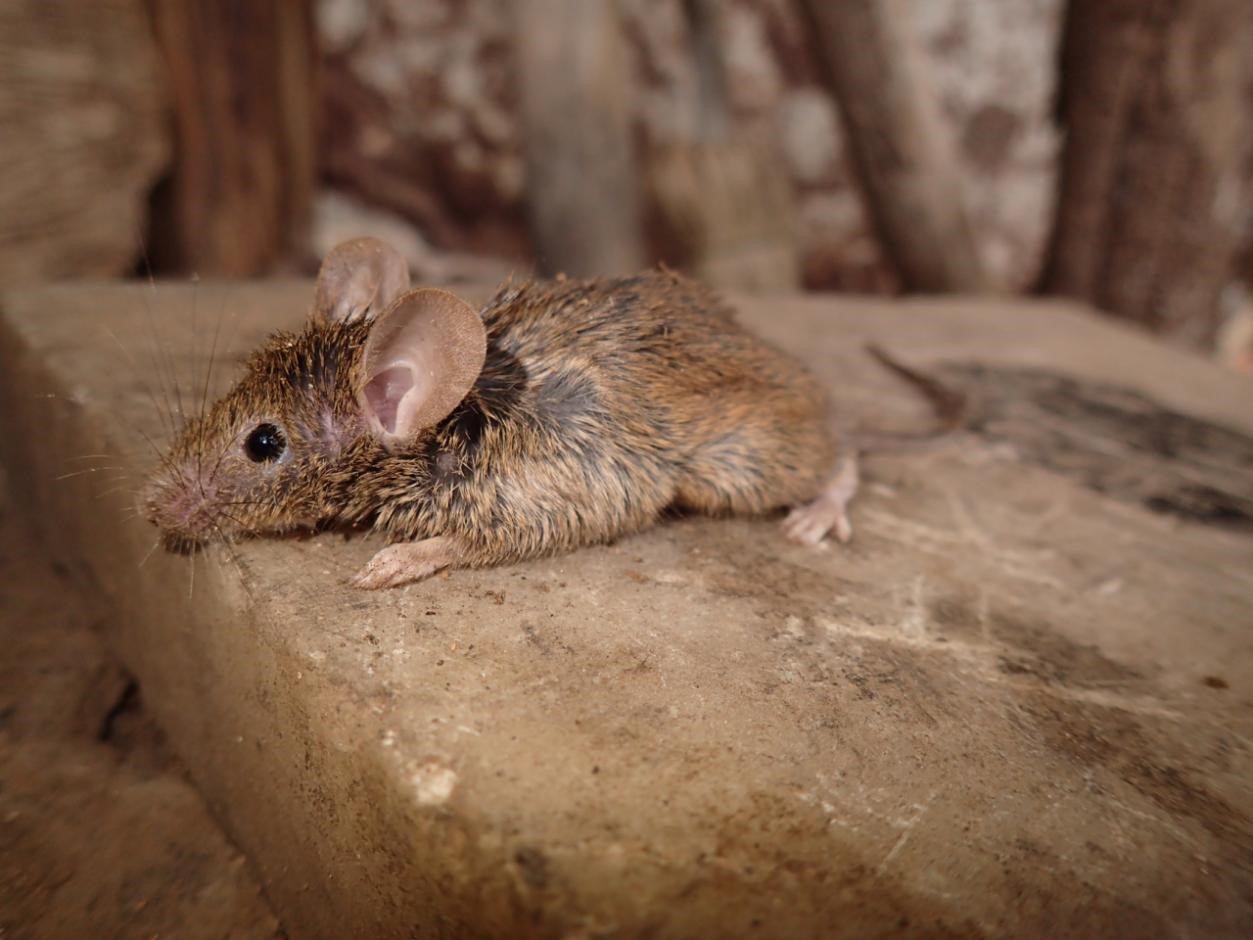Raquel Vasconcelos approved a new project in Cabo Verde
News

Photo legend: Mus musculus captured on São Vicente Island, Cabo Verde.
Tropibio Researcher Raquel Vasconcelos approved a new project in Cabo Verde, the project is entitled Measuring the impact of the house mouse on plants in Cabo Verde using new generation sequencing and is funded by the Higher Education, Science and Technology Office, Ministry of Education, Cabo Verde (GESCT 1/2019).
The project team members are: Raquel Vasconcelos (CIBIO-BIOPOLIS), Joana Paupério (CIBIO), Evandro Lopes (UTA), Isildo Gomes (INIDA), and Maria Romeiras (ISA-UL).
Project abstract:
Introduced species are one of the main threats to biodiversity, especially on islands. The introduction of mice in these systems has already led to the devastation of some habitats and the extinction of many species worldwide, also causing great losses at an economic level. However, the impacts of these micro-mammals on native and domestic plants are rarely quantified due to the lack of taxonomic knowledge and the delay in obtaining data using traditional methods of morphological identification of predated items. Thus, using new genetic methods of mass DNA sequencing using complex non-invasive samples, such as the metabarcoding of the invaders' fecal pellets, it is possible to obtain this information quickly and with high precision at the taxonomic level, without the need to involve many experts.
Project objectives:
The objectives of this project are: 1) to identify which species of wild and domestic native plants the domestic mice, introduced to the islands of Santiago and Santo Antão, feeds on; 2) quantify the incidence of plant consumption in respect to other diet items (invertebrates). This will allow assessing the impact of predation by M. musculus on different species of flora and the importance of plants in the diet of these invaders, as well as to identify which rodent populations can be designated as priorities for eradication. It is also intended, in accordance with the principles of the Twin Lab CIBIO/ InBIO – UniCV: 3) to train professionals and possible students involved in the project in methodologies involving the capture of micro-mammals, collection of non-invasive genetic samples and laboratory procedures for metabarcoding, in order to 4) enable the UniCV institutions to continue the project at the national level, and 5) to strengthen personal and institutional relations between all members.

Photo legend: Mus musculus captured on São Vicente Island, Cabo Verde.
Main results:
Trapping sessions were performed in three islands, Santiago, São Vicente and Santo Antão, collecting 114 individuals of Mus musculus. During those trapping session, one technician from the National Research Institute on Agrarian Development and one student from University of Cabo Verde were trained in the methodologies involving the capture of micro-mammals, collection of non-invasive genetic samples and laboratory procedures for dissection of the animals. Meanwhile, the amplification of three markers for plants, invertebrates and vertebrates was successfully performed and soon the library preparation is going to start. The PI of the project, with the support of the newly launched University of the Atlantic (UTA) and a local ONG (Project Biodiversity), is enabling the extension of the project to the island of Sal.
Trapping sessions were performed in three islands, Santiago, São Vicente and Santo Antão, collecting 114 individuals of Mus musculus. During those trapping session, one technician from the National Research Institute on Agrarian Development and one student from University of Cabo Verde were trained in the methodologies involving the capture of micro-mammals, collection of non-invasive genetic samples and laboratory procedures for dissection of the animals. Meanwhile, the amplification of three markers for plants, invertebrates and vertebrates was successfully performed and soon the library preparation is going to start. The PI of the project, with the support of the newly launched University of the Atlantic (UTA) and a local ONG (Project Biodiversity), is enabling the extension of the project to the island of Sal.
Publications:
Pinho CJ, Lopes EP, Paupério J, Almeida L, Romeiras M, Gomes I, Vasconcelos R (2020). Medição do impacto do rato-doméstico nas plantas de Cabo Verde usando sequenciação de nova geração. Report for the Office of Higher Education, Science and Technology, Ministry of Education, Cabo Verde government, 18 pp.
Pinho CJ, Lopes EP, Paupério J, Gome I, Romeiras MM, Vasconcelos R (2022). Trust your guts? The effect of gut section on diet composition and impact of Mus musculus on islands using metabarcoding. Ecology and Evolution, 12: e8638.